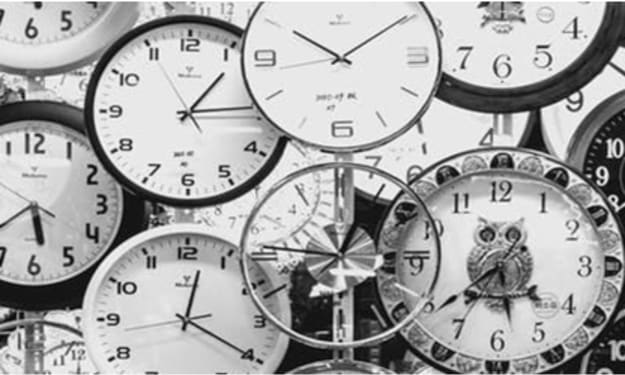
A fairly recent study conducted in Trinity College Dublin study covered over 8000 adults who were in their 50’s and 60’s who said they were having regular sex, with a third of those active once or twice a week – some even more.
"I often find clients' sex lives improve vastly in their 50’s and 60’s," says sex therapist Barbara Bloomfield, author of Couples Therapy: Dramas of Love and Sex.
There are many exercises and practices you can experiment with to boost your libido in your 50’s and 60’s. Also, the benefits of regular sex are numerous.

Asking any 30-something parent about the passion-killing properties of having young children, and they'll tell you that it is indeed so. There are a lot of sacrifices child-rearing springs on you. Once the kids are teenagers or older, reports of more and better sex are heard. It isn’t until the kids have left home that things really start to improve in the bedroom department.
Divorce rates among the over-50s are steadily rising according to a lot of experts. "One reason older women are having a lot of good sex is because they are in a new relationship, especially if they've been unhappy in their previous one," said Bloomfield. Women end to become more confident and come into their own at this age. They are much more aware of how their bodies function, what they do and don’t like or need, and what it takes to satisfy them – and they're not afraid to tell their partners."
Clinical psychologist Janice Hiller tends to agrees, and says she sees more empowered women at her practice who are middle-aged and over. Men and women are now questioning if they are getting everything they want out of life. As regards sex, older people are less willing to allow themselves to feel disregarded, undermined, neglected, ignored, or not part of the conversation surrounding what to do with their bodies.

Sex in later life can involve problems. There are hormonal changes that take place during what’s called the perimenopause - typically from your mid-40's onward – this can negatively impact on your libido, leaving you temporarily not interested in sex.
In women, declining oestrogen levels can cause some vaginal dryness and sometimes a thinning of the vaginal wall, which can make for uncomfortable sex. Vitamin-E cream can be a solution to this problem.
Testosterone levels, which are vital for a man’s and a woman's arousal, can also begin to decline in later life. Side-effects can be tiredness and irritability. A man’s testosterone level is said to begin to drop by about 1 per cent every year from aged 30 years to 40 years. This can lead to a reduced libido, tiredness, poor sleep and erectile problems.
Much can be done to boost your libido though. The many benefits of a regular sex life are numerous according to the Trinity study. The couples who continued to have sex into old age were more positive about their ageing process, enjoyed better overall health with fewer long-term medical conditions and were less prone to be depressed. Sex in later life also has a positive impact on your heart. Later life sex also lowers blood pressure and releases the feel-good endorphin hormone, which can act as a natural painkiller.
Another prominent study conducted at the Royal Edinburgh Hospital in the UK found that middle-aged people who had sex up to three times a week, which is perfectly feasible, could look up to seven years younger than those who had sex on a less-regular basis.

Maintaining an active sex life is a mutual decision. For whatever reason one half of a couple often decides to give up sex, which is when resentment or boredom creeps in. Many people fall for the stereotypical media messages that surround us saying “we shouldn’t be doing this at our age” or “I’d rather have nice cup of tea and a piece of cake. So many ageing people are missing out on the major benefits of continuing an active sex life for as long as possible.
What is there to be done? Part of the problem is that when women age they increasingly have what's called "reactive arousal", whereas men have "primary arousal".
All that this means is that a man will just have to look at something he finds attractive and he'll feel aroused. On the other hand, reactive arousal as experienced by most women, especially as they age, mean that women will get aroused by being cuddled and kissed, with lots of foreplay. The longer the initial kiss lasts, the better. It has been agreed by many sex councillors and therapists that this technique maybe simple but the results stemming from its practice are it are very effective and powerful.
Unhappy couples often end up detesting the very thing that it was that attracted them to their partner in the first place.

That terribly ambitious, extremely driven person who looked very attractive when you were 23 can become the partner who is often accused of being a workaholic who has no time for his/her love. That continual life and soul of the party is great fun when first encountered, but can become wearing when the responsibilities start to mount. It appears that people change very little over time. What you first see is what you’ll always get.
The renowned psychologist Janice Hiller says that she only gets to see unhappy couples: "The happy ones don't come to me, but I know many who are content and having great sex with their long-term partners. These couples know how to arouse each other and they know that intimacy and good communication are vitally linked. And, crucially, the stresses of child rearing have passed, so they're less tired." Plenty of rest, it appears, is a prerequisite for great sex in later life.
An often quoted US report quite recently published in the journal Menopause conducted a study involving more than 93,000 women who were aged between 50 to 79. The findings concluded that a sleep duration of fewer than five hours a night resulted in less-satisfying sex lives according to those surveyed.
The nutritionist Marilyn Glenville, author of The Natural Health Bible for Women attributes lack of sleep to lessening your sex drive. She recommends topping up magnesium levels, known as "nature's tranquilliser" thanks to its muscle- and nerve-calming properties, which promotes better sleep. Foods that are rich in magnesium include fish, green leafy vegetables and pumpkin and sunflower seeds.
Marilyn Glenville also advocates improving a person’s overall health. "If you don't feel healthy, it's harder to feel energetic and sexy," she explains. She advises following a balanced diet full of "good" fats such as oily fish, eggs, nuts and seeds.
As well the requisite amount of rest, the right foods are essential for putting you in the mood for sex, especially in later life. "Good fats are important for overcoming a low libido because sex hormones like testosterone are manufactured from the cholesterol contained within those foods."
More right foods that are rich in zinc – like spinach, beef and kidney beans – are also important for the production of your sex hormones. Marilyn Glenville is also a great advocator of regular exercise and managing stress which will boost your libido which will put you in the mood for sex more on a regular basis regularly.
The age-old question, how much sex should we be having? (pun intended) is an intriguing and pretty much irrelevant one. "There's no such thing as a normal amount," says sex therapist Bloomfield. "I've had 70-year-old clients who have said to me, 'Our sex life has gone off the boil a bit lately.' And when I ask them how often they're having it, they'll say, 'Only three times a week these days.'

There is an immensely wide spectrum when it comes to a person’s sexual proclivity, especially when it involves those over a certain age.
"...on average, I'd say once you're in your 40's and 50's, once a week to once a month is within the 'normal' range." The major points attributed to a good sex life in later life, according to Bloomfield, are these: "When it comes to sex, don't get old before your time. Push yourself a little bit. That's not to say you should do things you don't want to do, but keep trying new things and don't fall into the trap of just not making an effort.”
"Sex in later life is like the gym – you know the benefits but often you just can't be bothered to go and there's something good on TV you'd rather watch. But when you do it, you remember how much you enjoy it and how good you feel afterwards." After all, she adds, "Sex is like a muscle – use it or lose it."






Comments
There are no comments for this story
Be the first to respond and start the conversation.